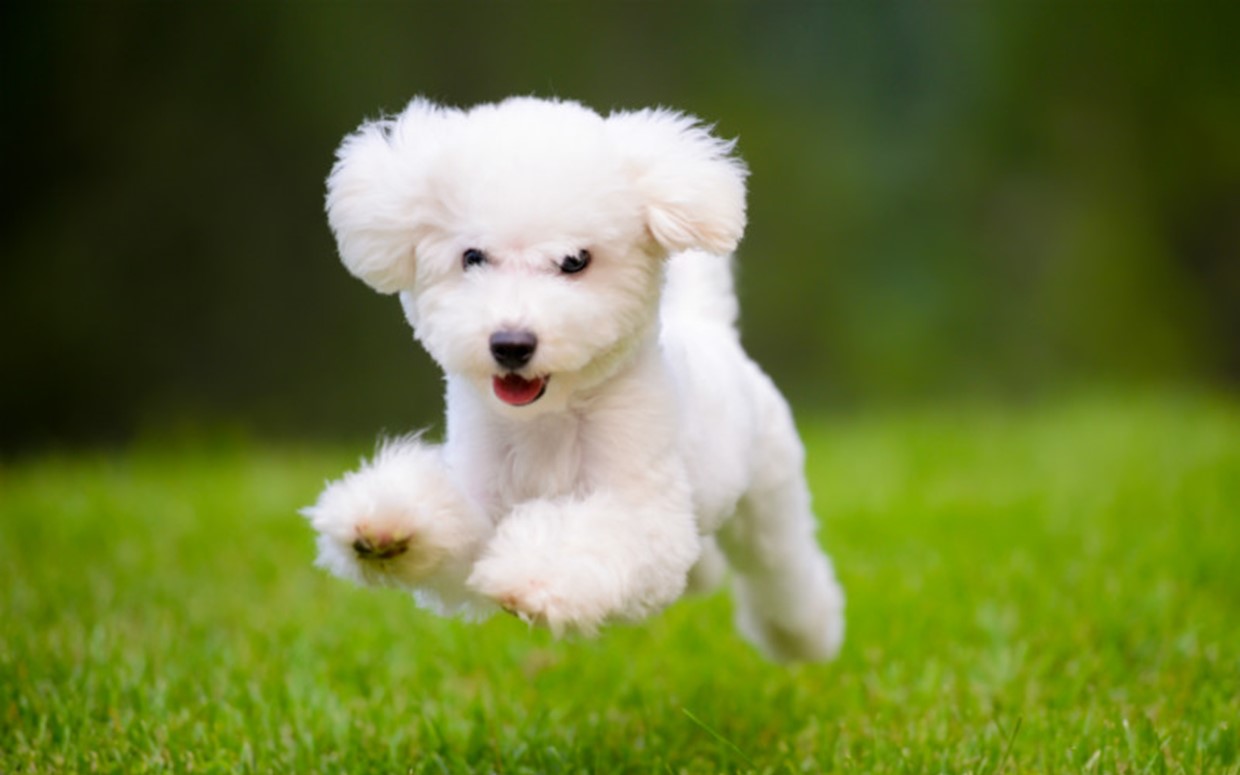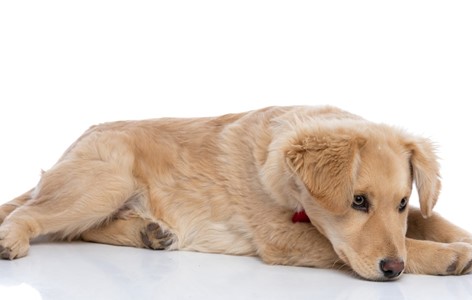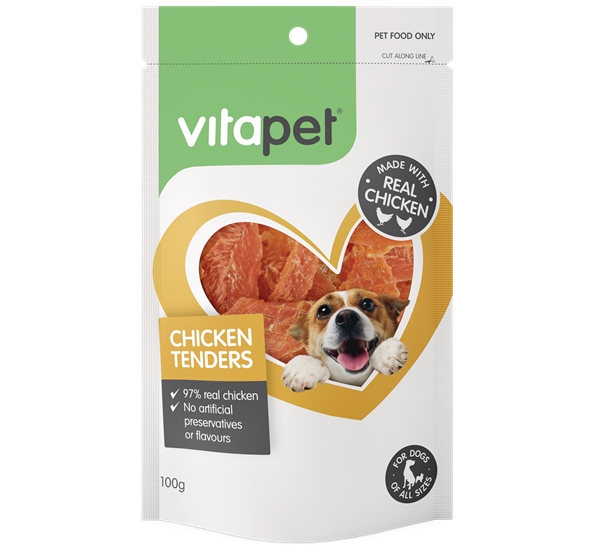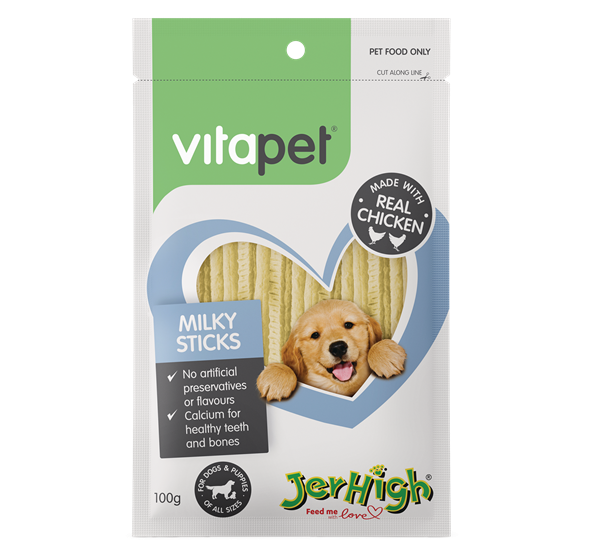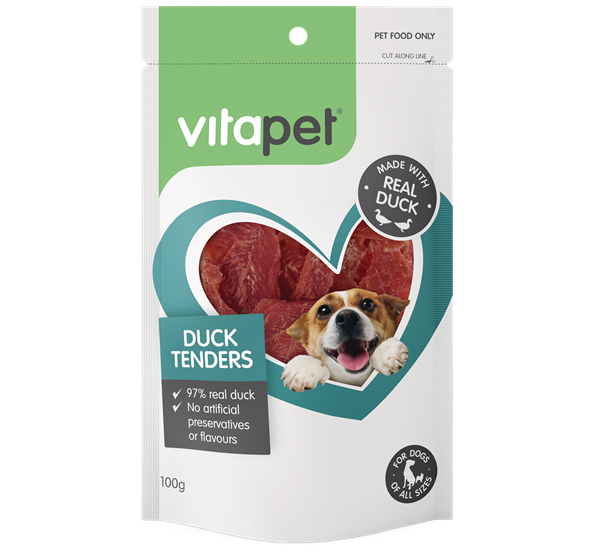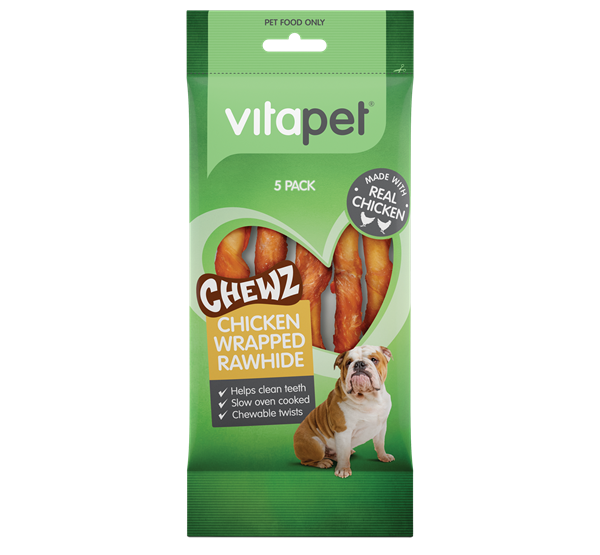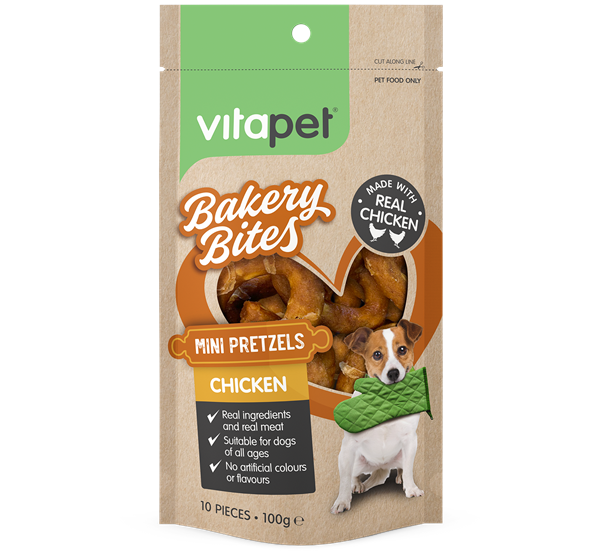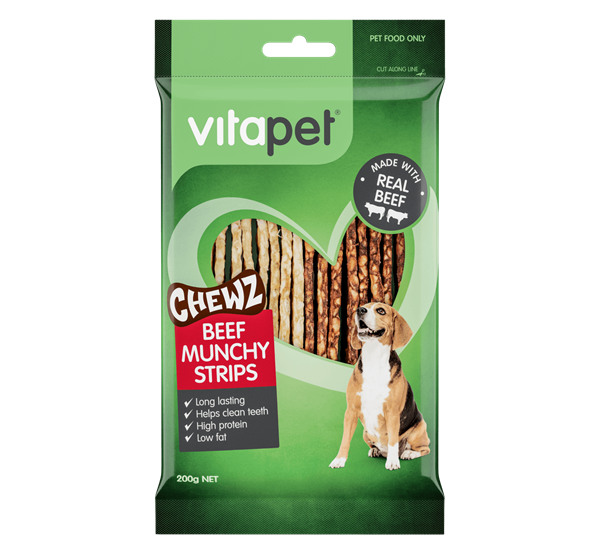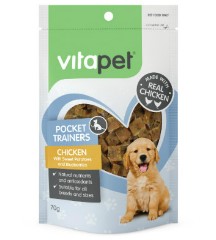Whether it’s time for walkies, pats or dinner, there’s probably no one who can read your furry friend better than you. However, when it comes to their health, even experienced pet parents occasionally need a little help.
That’s why we’ve compiled the five tell-tale signs your good boy (or girl) is in excellent shape.
1. A clean, glossy coat
Every day is a good hair day when your dog has a gorgeous, shiny coat. It’s the number one sign of a healthy pup who's receiving high-quality, well-balanced nutrition.
So, if your mate isn’t doing so well, it’ll probably show on their coat as well
While adjusting their grooming routine may sometimes do the trick, a coat that’s in poor condition (e.g. overly dry or dull) may be the result of improper nutrition. It can also be a sign of hormonal imbalances or, in some cases, even point to conditions such as Cushing’s Syndrome or diabetes. If it appears to be an ongoing problem it’s best to talk to your vet.
2. Blemish-free skin
Clear skin makes you feel great on the outside as well as the inside - and it’s the same for your furry mate. If you notice things like scabs, growths or rashes, it’s worth getting a professional check-up. Excessive licking could be a symptom of an irritating skin condition caused by bites from creepy little crawlers or allergic reactions to plants, grass roots or certain ingredients in grooming products
3. Normal poop and pee habits
You might want to put down your lunch for this one, but it’s important. Your pup’s bladder and bowel movements are a key indicator of how they’re feeling on the inside – after all, they can’t tell us but their poops can!
Healthy pee is typically a pale transparent yellow which indicates that your pooch is both well fed and hydrated.
On the other paw, if you notice a dark or bright yellow colour, it may mean they’re dehydrated. Other colours such as red or pink can signal an infection, in which case you should contact your vet as soon as possible.
And when it comes to your pup’s poo, you want to see regular, firm stools with no blood, mucus, worms, eggs, greasy coatings or showing other substances that are chalky white or black. If you notice anything out of the norm, it’s time to call upon your trusted vet.
4. A healthy doggy smell
It’s no secret most pups don’t smell like your favourite perfume. That’s because they love to roll around in the dirt and work up a sweat on your afternoon jog. But sometimes the root of the problem comes from within. From their mouth, specifically.
Tooth-related issues are very common in dogs so until your four-legged friend learns to brush their own teeth, you’ll have to help them keep their breath fresh and their sparkly whites clean.
The most natural way to help them keep their teeth clean is letting them do what they do best: chew a healthy, delicious treat.
This will not only make their loving, sloppy licks more pleasant but also help prevent gum diseases down the track.
Their ears can also gather a lot of dirt, so regular cleaning is essential. Anything like discharge, waxy build-up or a strong, yeasty smell can indicate an infection or other problems.
5. A playful, alert personality
Does your pooch run to the front door to greet you when you come home? Is your pet playful, alert, energetic, but also able to settle themselves at night and go to sleep? All those things are sure signs of good mental health in your pup.
However, sudden behavioral changes can be a sign something’s off. For example, when they suddenly seem less energetic than usual, they aren’t following you around the house as they’d normally do, and refuse water or food.
As a paw parent, keeping your four-legged friend happy and healthy should be your number one priority. Fortunately, there are clear signs to tell us when our pups are doing great or may not be feeling their best. And remember, when in doubt, it’s best to talk to your local vet.
Frequently Asked Questions
What is the most common health problem in dogs?
The most common health problems in dogs include dental disease, obesity, and skin conditions. These issues often develop gradually and can be influenced by diet, exercise, and regular veterinary care. Monitoring your dog for early signs and maintaining preventative care can help reduce the risk of these problems.
How do I know if my dog is unwell?
Early signs that a dog may be unwell include changes in appetite, energy, coat condition, toileting habits, or behaviour. Subtle symptoms, such as lethargy, coughing, or unusual grooming, may indicate underlying issues and should be discussed with a veterinarian.
How to tell if your dog is in good shape?
A healthy dog is generally active and alert, has a shiny coat, clear eyes and ears, regular bowel movements, and maintains an ideal body weight. Observing these factors consistently can help you catch any worrying changes early and keep your dog in perfect shape.
At what age do dogs usually start having health problems?
Health issues can start appearing at different ages depending on breed and size. Small breeds often show signs from around 7–8 years, while large breeds may develop problems earlier, around 5–6 years.











